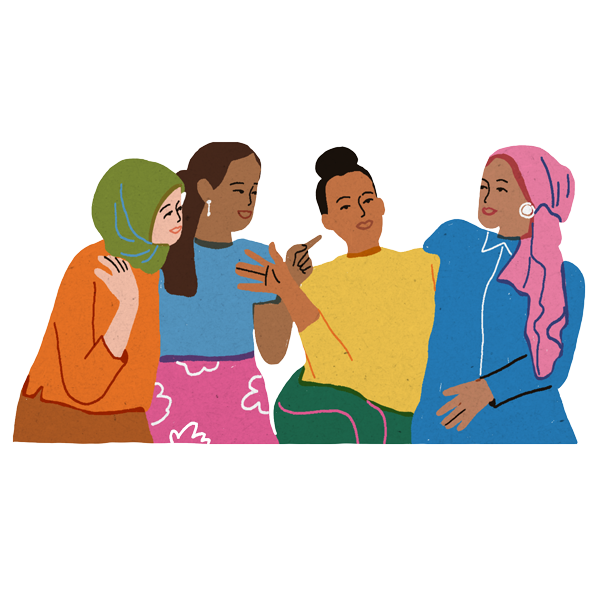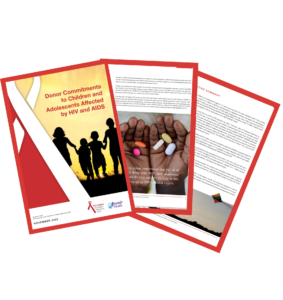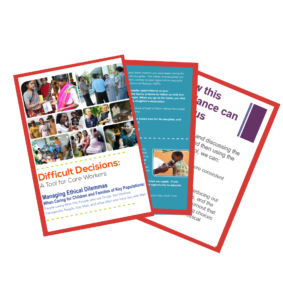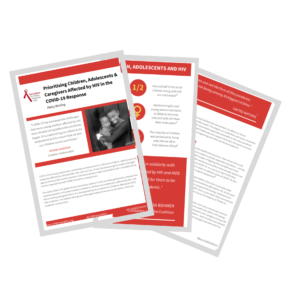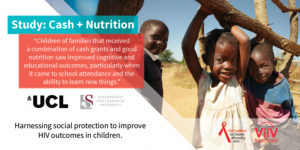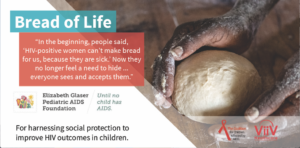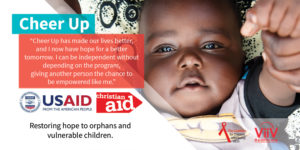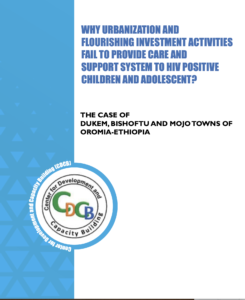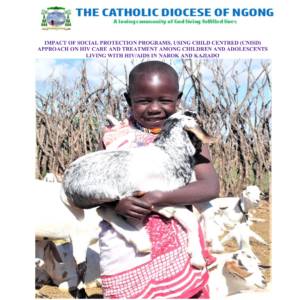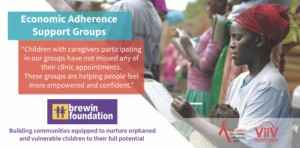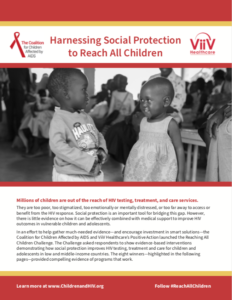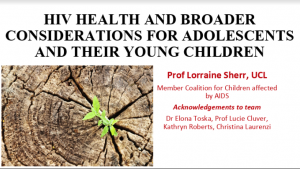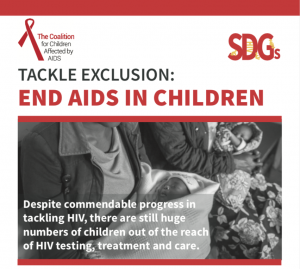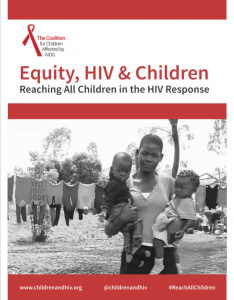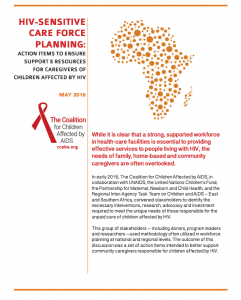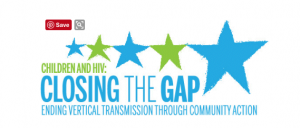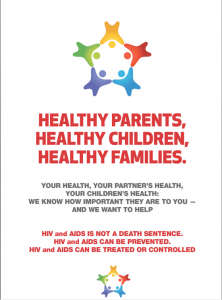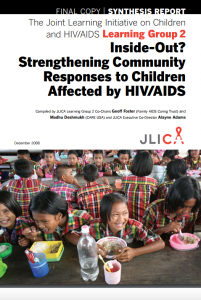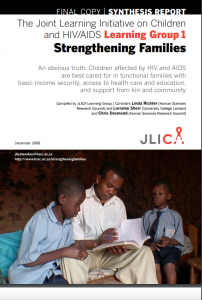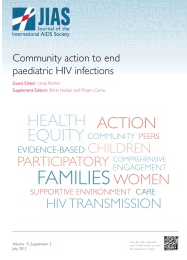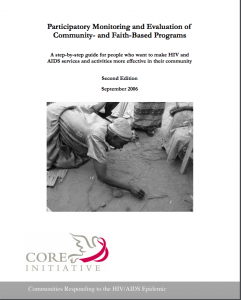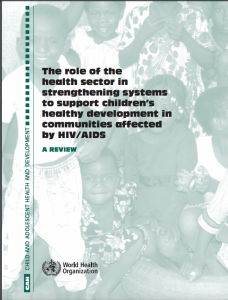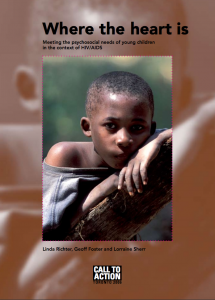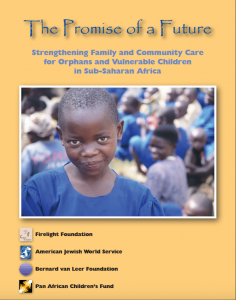The number of new HIV infections among children is more than eight times the global target. Two fifths of all children born with HIV go undiagnosed and half are not treated. And while children represent only 5% of people living with HIV, they account for 15% of AIDS-related deaths. These and other grim statistics in the UNAIDS 2022 Global Update put in stark relief just how far behind the targets we are. The Coalition has launched a new report that identifies how much is spent on children and adolescents affected by HIV and what action we can all take to achieve the Sustainable Development Goals and end AIDS. Read the report here.
Managing ethical dilemmas when caring for children and families of key populations: People Living With HIV, People who use Drugs, Sex Workers, Transgender People, Gay Men, and other Men who have Sex with Men. A tool for Care Workers, available in English, French, Russian and Spanish.
COVID-19 is having catastrophic and lasting consequences for millions of children, adolescents and caregivers affected by HIV and AIDS. The stigma, co-morbidities and socio-economic vulnerabilities associated with HIV and AIDS, leave them especially vulnerable to the new pandemic and its impacts. Lock downs have curtailed livelihoods and the support they rely on in order to survive and thrive. We have published a new Policy Briefing calling for action now to prevent those already made vulnerable by HIV and AIDS from being further impacted; and so as not lose precious gains made against HIV. Read the COVID-19 Policy Briefing now.
In 2019, the Coalition for Children Affected by AIDS and ViiV Healthcare’s Positive Action awarded $40,000 in grants to eight organizations that could show how the use of social protection supports HIV testing, treatment, and care for children in low- or middle-income countries. One of the winning proposals was submitted by University College London to study how cash grants combined with quality nutrition affect child cognitive outcomes. The researchers used data collected from 796 HIV-affected children (ages 5-15) attending community-based organizations in South Africa and Malawi. Read more about these efforts in this document.
In 2019, the Coalition for Children Affected by AIDS and ViiV Healthcare’s Positive Action awarded $40,000 in grants to eight organizations dedicated to helping children and adolescents affected by HIV in low- or middle-income countries. One of the winning proposals was submitted by the Elizabeth Glaser Pediatric AIDS Foundation (EGPAF) to document their Bread of Life program in Turkana County, Kenya. Read this case study to learn more about the program.
In 2019, the Coalition for Children Affected by AIDS and ViiV Healthcare’s Positive Action awarded $40,000 in grants to eight organizations that could show how the use of social protection supports HIV testing, treatment, and care for children in low- or middle-income countries. One of the winning proposals was submitted by Cheer Up, a community-based organization supporting 9,000 children affected by HIV and AIDS in Kiambu, Central Kenya. Read about its award-winning Household Economic Strengthening (HES) program to combine HIV and social protection support for children affected by HIV in this case study.
In 2019, the Coalition for Children Affected by AIDS and ViiV Healthcare’s Positive Action awarded $40,000 in grants to eight organizations that could show how the use of social protection supports HIV testing, treatment, and care for children in low- or middle-income countries. One of the winning proposals was submitted by the Center for Development and Capacity Building (CDCB) to document its pilot project to prevent mother-to-child HIV transmission in Ethiopia. The organization conducts trainings, organizes forums and dialogues, and implements innovative projects to be scaled up by government and development partners in Ethiopia. Read more in this case study.
Last year, the Coalition for Children Affected by AIDS and ViiV Healthcare’s Positive Action awarded $40,000 in grants to eight organizations dedicated to helping children and adolescents affected by HIV in low- or middle-income countries. One of the winning proposals was submitted by the Catholic Diocese of Ngong to document its program to support orphans and vulnerable children (OVC) in Kenya. Read about these efforts in this case study.
Last year, the Coalition for Children Affected by AIDS and ViiV Healthcare’s Positive Action awarded $40,000 in grants to eight organizations dedicated to helping children and adolescents affected by HIV in low- or middle-income countries. The Brewin Foundation, which is using support groups to improve retention and viral suppression among children and adolescents living with HIV and AIDS in Uganda’s Mityana District, submitted this winning case study.
Millions of children are out of the reach of HIV testing, treatment, and care services. Social protection is an important tool for bridging this gap. However, there is limited evidence on how it can protect and support vulnerable children and adolescents in testing, treatment and care. In an effort to help gather much-needed evidence, the Coalition for Children Affected by AIDS and ViiV Healthcare’s Positive Action launched the Reaching All Children Challenge and asked respondents to show evidence-based interventions demonstrating how social protection leads to HIVs testing, treatment and care for children in low and middle-income countries. The eight winners — highlighted in pages of this brochure — provided compelling evidence of programs that work.
In a recent presentation, Coalition Member, Professor Lorraine Sherr, addresses the complex experiences of HIV positive and HIV-exposed but uninfected adolescents and their young children.
Despite commendable progress in tackling HIV, there are still huge numbers of children out of the reach of HIV testing, treatment and care. Tackling the exclusion of these children is fundamental to achieving HIV targets. The Coalition for Children Affected by AIDS is calling for differentiated service delivery models, including broader social and economic support, to ensure that all children affected by HIV/AIDS can be tested, treated and cared for. This brief, launched at the AIDS 2018 conference in Amsterdam, highlights the priorities on which the world must focus in order to end AIDS in children.
At the AIDSImpact conference in November of 2017, the Coalition issued an advocacy brief highlighting what it will take to reach the poorest, most excluded children for who, advances in HIV treatment, prevention and care remain out of reach.
In February 2016, the Coalition hosted a meeting focused on HIV-sensitive “care force” planning for children. Donors, program leaders and researchers came together to identify the necessary interventions, research, advocacy and investment required to meet the unique needs of those responsible for the unpaid care of children affected by HIV. Presentations from this meeting can be found here.
In advance of AIDS 2012, the Coalition hosted a two day meeting focused on ending vertical transmission through community action. All presentations from these meetings are available here.
The Coalition produced this brochure for community organizations to adapt and use with families affected by HIV and AIDS.
Strengthening communities so they can respond to the HIV/AIDS crisis is critical for today’s children and vital for future generations.
Children affected by HIV and AIDS are best cared for in functional families with basic income security, access to health care and education, and support from kin and community.
In 2012, Coalition member, Linda Richter, edited a special issue of the Journal of the International AIDS Society. The issue focused on Community action to end new paediatric HIV infections. The full issue is available here.
A step-by-step guide for people who want to make HIV and AIDS services and activities more effective in their communities.
This document is a review of the scientific evidence and practice experience in providing what has come to be called psychosocial programming and support for children infected with and affected by HIV, and their caregivers.
Where the heart is: Meeting the psychosocial needs of young children in the context of HIV/AIDS is an opinion piece developed through a series of four workshops organised by the Bernard van Leer Foundation entitled “On the Road to Toronto.”
This brief report, co-produced by the Firelight Foundation, the American Jewish World Service, the Bernard van Leer Foundation and the Pan-African Children’s Fund, addresses the devastating impact of HIV/AIDS on children and families in Sub-Saharan Africa.
